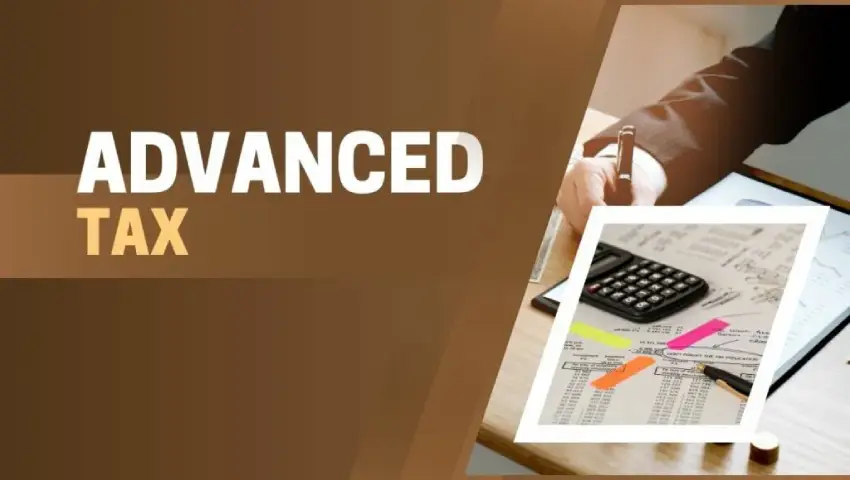
- 15/04/2025
- MyFinanceGyan
- 78 Views
- 2 Likes
- Tax
Advance Tax in India: A Simple Guide for Individuals
Paying your taxes on time is important for your financial health. In India, people are expected to pay a part of their income tax in advance—this is called Advance Tax. This guide will help you understand what advance tax is, who needs to pay it, how to calculate it, and what happens if you don’t pay on time.
What is Advance Tax?
Advance tax means paying your income tax in parts before the end of the financial year, instead of paying it all at once. It’s also called the “pay-as-you-earn” system.
The government collects taxes this way to keep money flowing throughout the year. For individuals, it makes tax payments easier by spreading them out instead of making one big payment at year-end.
Why Do You Need to Pay Advance Tax?
- Helps Government Function Smoothly: The government uses this money to provide public services throughout the year.
- Easier for You: Paying tax in parts avoids the burden of paying a large amount at once.
- Avoids Penalties: Missing payments can lead to extra charges and legal trouble.
Who Should Pay Advance Tax?
Anyone whose total tax due in a year is more than ₹10,000 needs to pay advance tax. This includes:
- Salaried individuals
- Self-employed professionals or business owners
- Hindu Undivided Families (HUFs)
- Companies and firms
How to Calculate Advance Tax?
Follow these steps to calculate how much advance tax you need to pay:
- Estimate Your Total Income: Add up your expected income from all sources—salary, business, rent, capital gains, etc.
- Subtract Deductions: Reduce your total income by claiming deductions under sections like 80C, 80D, 80G, etc.
- Calculate Tax: Use the current income tax slabs to figure out your tax amount. Don’t forget to include cess and any surcharge, if applicable.
- Reduce TDS: Subtract any tax already deducted at source (TDS) by your employer, bank, or clients.
- Calculate Installments: Pay the remaining tax in 4 parts during the year as per the schedule below.
Advance Tax Payment Due Dates:
Due DatePercentage of Tax to be Paid
June 15 15%
September 15 45% (total till now)
December 15 75% (total till now)
March 15 100%
Tip: If your income changes during the year (like a bonus or property sale), adjust your advance tax amount in the next installment.
What Happens If You Don't Pay Advance Tax?
- Interest Charges: You may be charged interest under Sections 234B and 234C for not paying on time or paying less than required.
- Penalties: You may have to pay a penalty for late or under-payment.
- Legal Trouble: In serious cases, legal action can be taken for avoiding tax payments.
Advance Tax vs Self-Assessment Tax:
- Advance Tax is paid during the financial year based on estimated income.
- Self-Assessment Tax is paid after the year ends when you file your Income Tax Return (ITR). It covers any balance tax left after TDS and advance tax.
If you pay enough advance tax during the year, your self-assessment tax at the end will be minimal or zero. But if you paid too little in advance, you’ll need to pay more when filing your ITR—with interest.
Final Thoughts:
Understanding and paying advance tax on time helps you avoid penalties and keeps your finances healthy. It’s also your legal responsibility as a taxpayer.
- Stay updated with changes in tax slabs and rules.
- If needed, consult a tax expert for proper calculation and compliance.
Disclaimer: This article is for awareness and educational purposes only. These are personal views of the author and do not suggest any product or service.



